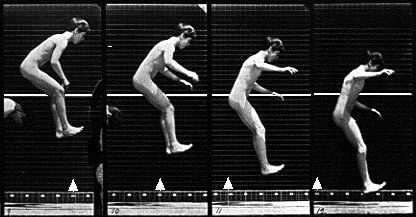
Fashioning the Body: Versions of the Citizen, the Self, and the Subject
The Evergreen State College | Fall 2007-Winter 2008
User Login |
Concept Rhyming PaperLiz Fashioning the Body 10/4/07 Knowledge Before I started my analysis on the term, “knowledge”, I decided to think about what my thoughts about this term were. Specifically, what my definition of the term was, before reading Foucault. I asked myself to define knowledge. If you asked me to define this term a week ago, I probably would have said that knowledge is something smart people have. It is full of facts, history, and education. This is just one perspective out of millions. It is hard to say what others think about knowledge, but for purposes of this paper I’m just going to pretend/assume that people have a similar perspective about this term and its meaning. I always thought that you got “knowledge” from factual texts, from studying for hours and being tested. Sure, you retain information when you do activities like this, but are you gaining knowledge? Are these experiences giving you knowledge? And what other, if any, experiences besides educational, make one knowledgeable or have knowledge? I want to point out the phrase, “gaining knowledge.” It is interesting to me, because the word “gain” isn’t usually associated with something positive. Foucault deploys the term knowledge to me, as something you can’t gain. You can’t immediately gain knowledge, you have to go on a journey to obtain knowledge. In the History of Sexuality, Foucault presses the issue of the knowledge of sex. I thought about my own experience with sex/sexuality, and I asked myself: how did I retain my knowledge about sex? The answer I came up with was this; through experience and expression. I learned the facts about sex from educators in elementary school, but that is not how I became knowledgeable about sex or my sexuality. I think one could argue with me here, saying no, actually you learned facts and obtained knowledge on this subject from your educators. But, I think Foucault would be on my side, saying how ordinary of you. In the History Of Sexuality, Foucault says, “In the erotic art, truth is drawn from pleasure itself, understood as a practice and accumulated as experience; pleasure is not considered in relation to an absolute law of the permitted and the forbidden, nor by reference to a criterion of utility, but first and foremost in relation to itself; it is experienced as pleasure evaluated in terms of its intensity, its specific quality, its duration, its reverberations in the body and soul. Moreover, this knowledge must be deflected back into the sexual practice itself, in order to shape it as though from within and amplify its effects.” I think he complicates the classical or ordinary definition of the term knowledge in these statements. Specifically when he says that knowledge must be deflected back into the sexual practice. Some would not agree with this, by saying that you don’t have to practice sex to have knowledge about it. But, by Foucault’s standards, in order to be knowledgeable you must experience, practice, accumulate and understand before you have knowledge. If you didn’t do these things, there would be no room to shape and amplify the effects of knowledge. And with out that, you don’t have knowledge. Complications arise with the ordinary term when Foucault says that one can shape and amplify the effects of knowledge. One would probably argue saying that there aren’t more than one effects of knowledge, or you can’t amplify it. It does not mesh well with our ordinary understanding of the word. I would disagree with them because our knowledge of everything is shaped and effected and amplified every day. Every experience and situation goes into our mind and soul and effects something in us. It shapes our perspective and understanding, our knowledge. I think Foucault deploys knowledge as something you get over time. There is a journey involved and I think this complicates the ordinary understanding. Foucault says, “On the other hand, we belong to a society which has ordered sex’s difficult knowledge, not according to the transmission of secrets, but around the slow surfacing of confidential statements.” I like how he said “sex’s difficult knowledge”. The knowledge of sex is difficult. Once again his deployment of the term is complicating our standards of the definition. He said our society orders sex’s difficult knowledge, which I’ve interpreted as we’ve altered the way in which we experience and learn about sex. We’ve modified the process to something short, sweet, and short changed. One would disagree with the statement that the knowledge of sex is difficult, but after reading Foucault and analyzing how he deploys the term, I agree with him. There is much more to obtaining knowledge about sex from just the facts. I think Foucault expresses this about knowledge. It is something that you receive over time, and experiences. And, it is something that is always growing and shaping. Knowledge is so complicated itself, that we can’t just read a book and be knowledgeable. We must go through something, we must practice something to really know what it is about. You grow when you practice and experience. You shape your perspective and knowledge over time through a journey of enlightenment and experience. So, I’ve come to the conclusion that, knowledge is not something that just smart people have.
Submitted by Liz on Fri, 10/05/2007 - 3:30pm. Liz's blog | login or register to post comments | printer friendly version
|
Who's onlineThere are currently 0 users and 1 guest online.
Events
|
|||||||||||||||||||||||||||||||||||||||||||||||||